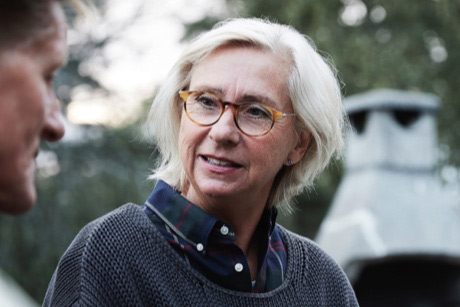Go paper-free
Amend paper-free preferences for your statements and correspondence.

The sooner you plan for later life, the sooner you could start to enjoy long-term peace of mind.
How you choose to spend your later years is up to you. You might want to travel the world, take up new hobbies or simply enjoy some well-earned comfort and financial security. Whatever you are hoping for, a financial plan is one of the best ways to make it happen.
We’ve brought together information on
If you own your home, it could be your biggest asset. If you do, you have the option of using your home as a potential source of income in your later life. There are several ways you can use your home for your financial benefit, but it is important to consider your options carefully.

If you are a homeowner, one option is equity release. This is when you borrow money against the value of your property. The amount you borrow, plus interest, is repaid when you die, which can reduce the value of your estate.

If the time is right, ‘downsizing’ your home may be an option. It could help free up money to use as income in your later years. It can also be a good way to simplify your life and may reduce your household costs.

If you have the money, buying a second home could provide a holiday home for you and your family. It could also provide extra income if you are able to rent it out.
If selling your home is part of your plan, you should check that it makes financial sense. Consider how much your home is worth, how well the housing market is performing and if your home is ready to be sold.
More importantly, you need to be sure that a move will be right for you. Think about how you want to live your life in your later years.
You may think that investing for your future is complicated. We have lots of useful information and helpful guides on what investments are available and how to manage them.
Please remember, the value of an investment and the income from it can go down as well as up and you may get back less than you invested. We don't provide advice, so if you are in any doubt about making your own investment decisions we recommend you seek advice from a suitably qualified financial adviser. There will normally be a charge for that advice.
For a complete later life financial plan, there are few things you may want to think about. Think about later life care and what will happen to your estate when you die. While you may be fighting fit now, it will give you peace of mind to know that you have a plan and that your wishes will be taken care of.
One of the most important things you can do, is to have an up-to-date will. This will make sure that your wishes are carried out after you die. It’s also good to check your will regularly as your priorities can change over time.
It may be worth thinking about putting a Power of attorney in place. This is a legal process that allows you to appoint someone you trust to make decisions on your behalf, if you can't do so yourself.
If you have a pension or life insurance policy, you may be able to name someone to benefit after your die. Check with your pension provider or policy provider and make sure your beneficiary information is kept up-to-date. It’s also important to make sure your loved ones know that you have this in place.
You may want to leave as much as you can for your family after you die. If you do, you need to make a plan so that this can happen. Here are some of the things you may want to think about.

Most people pass their home on to their family when they die. If you want to do this, there are few things to think about. For instance, if your estate exceeds the Inheritance Tax allowances, a gift of your home to your children could secure an extra tax-free allowance of up to £175,000. Tax can be a complex topic, so it may be worth seeking additional financial advice. There is more information available to help you on the government website.

Your remaining pension savings could be passed on to your family or friends. To do this you need to nominate a pension beneficiary and let your pension provider know who they are. You can find out more from the pension experts at Scottish Widows.
Later life care can be expensive, so it’s worth understanding what options would be available to you. Discuss this with your family and make a plan that would ensure you get the care that you may need.
Another thing to think about is a funeral plan. This will take the responsibility off your loved ones after you die. It will also guarantee you get the type of funeral you want.
With a funeral plan, you can pay in advance for most of your funeral, at today’s prices. You can buy a plan from a funeral directors or funeral plan provider and the money you set aside in it can only be used for funeral costs. Once you have decided what you want your plan to include, you can pay for it in a lump sum or monthly instalments.
If Lloyds Bank is the named executor in the Will or if you need support to deal with an estate and would like to find out more about our services, then please call us on 0800 056 0171 (or +44 (0) 1733 286 482 if calling from abroad). Lines are open Monday to Friday, 9am – 5pm. Calls may be monitored or recorded.
Our initial support and guidance is fee free and without obligation. If you think the service is right for you, we will explain our fees and charges to act as Executor or Administrator in an Estate. Fees and charges for our services are charged to the Estate.

Tools, tips and advice on managing your money.

We are by your side through life’s key moments.